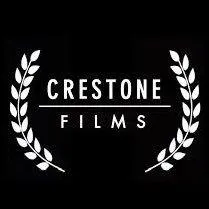Help Crestone Films bring
the wisdom traditions to global audiences.


INTERVIEWS
Director Mark Elliott:
The Sixteenth Gyalwa Karmapa was universally recognized as one of the great spiritual teachers of his time, a ‘master of masters’ in the world of Tibetan Buddhism. During the nineteen seventies he made several visits to the West. I vividly remember attending the Black Crown ceremony he performed. At the time I had only a peripheral interest in Buddhism. I left the ceremony quite stunned by the presence of this extraordinary being.
THE LION'S ROAR (1985)
And so began a journey that continues to this day. A year or so after this I had started a film company, Centre Productions, in Boulder, Colorado, with my teacher, Chogyam Trungpa Rinpoche. We filmed parts of the Karmapa’s visits to the United States but had not done anything with the footage. Then in 1981 we received that sad news that the Karmapa had passed away, and that he would be cremated after a forty nine day waiting period at his monastery, Rumtek, in the Indian Himalayan state of Sikkim.At that time we decided to go over and film this event. Financial backing, a seven person crew, permits and travel arrangements fell into place — almost, it seemed miraculously — and we found ourselves spending several weeks in the extraordinarily powerful and poignant atmosphere surrounding the cremation, while capturing this on film.The result was THE LION'S ROAR. Both a portrait of the extraordinary being that was the Sixteenth Karmapa, and study of impermanence. In accordance with the Buddha’s teachings everything is subject to decay. Even the Buddha passed away. Yet the manifestation of enlightened mind continues. The film ends with the promise of the Karmapa’s future rebirth.
Director Mark Elliott:
In 1988 I moved to the remote community of Crestone, in the Sangre de Cristo mountains of Southern Colorado. For 20 years, making films had been the ruling passion of my life. While attaining some degree of professional success, my work had increasingly become empty and meaningless, a way just to make money. I felt burnt out, and wanted to change my priorities, to put family and Buddhist practice front and centre.the presence of this extraordinary being.
EYE OF THE LAND
A main attraction of Crestone was that the 16th Karmapa had visited and been given land there. I had made a film about this great Buddhist master after he had passed away (see THE LION'S ROAR). Now one of his principal disciples, Jamgon Kongtrul Rinpoche, asked a small group of us the build a stupa to consecrate the land. We knew little about stupas (Buddhist shrines that serve as containers for the relics of great teachers), or for that matter about building. Like so many things, if we knew what was involved we would never have got started.Naturally it occurred to me that I should make a film about creating the stupa. So I bought a good video camera and proceeded to do so. EYE OF THE LAND tells the story of the seven years it took for us to accomplish this task. Most of all it tells the story of how this small, tightly knit group accomplished this task, in very human terms.An Englishman, two Danes a Venezuelan a Dutchman — and yes, an American — build a Tibetan stupa in the middle of nowhere, in an absolutely spectacular setting. In the end any number of challenges were met and obstacles surmounted. And the stupa remains in all it’s revealed glory, a beauty ever ancient, ever new.
BODHISATTVA
BODHISATTVA captures a moment in the life of the Seventeenth Gyalwa Karmapa, one of the most important Lamas in the world of Tibetan Buddhism. For many, he is the face of the next generation of Tibetan Buddhism. In this hour-long documentary, this young man of extraordinary warmth, humanity and charisma embarks on his first tour of the United States, where he speaks to packed auditoriums and delights in encountering this new world. BODHISATTVA interweaves footage shot on tour with superb background footage of the Karmapa’s childhood in Tibet, sequences in Dharamsala, India, and film of the previous Sixteenth Karmapa.
YANGSI (2012)
Jigme Lhundrup is the eponymous 'Yangsi,' the reincar-nation of a greatly revered Tibetan Buddhist meditation master. He must train to uphold this legacy from the age of four. Even with the loving support of his teachers and family the way forward is not always clear. Questions begin to arise about the place of his tradition in the modern world, and his own abilities. In this documentary film, director Mark Elliott follows a journey spanning 14 years, culminating in the Yangsi’s introduction to the world as a young man, when he must fully assume the mantle of his predecessor. With unprecedented access, Yangsi explores everyday life within a mystical tradition—and reveals the unusual spirit of the boy at its center.
ONLINE MEDIA

© 2024 by Crestone Films